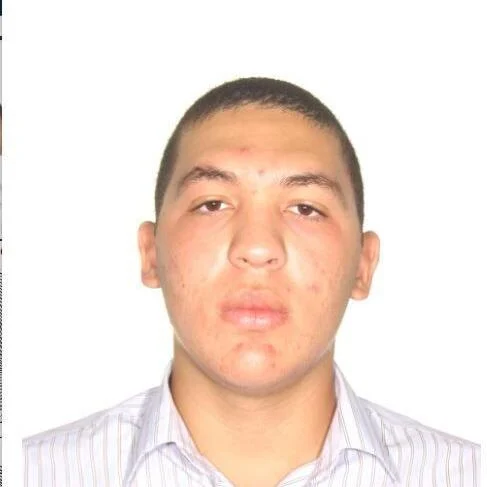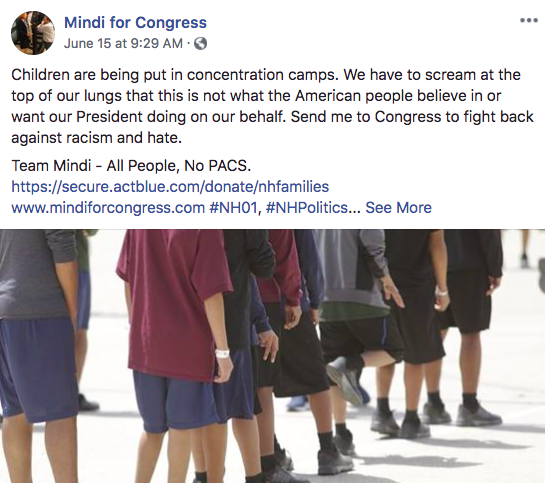Altschiller Defends ‘Alleged’ Mass Murderer Illegally Living in NH

As the U.S. Attorney’s Office announced a guilty plea in a case involving an illegal immigrant crossing the border into New Hampshire, Granite State Democrats continued their defense of sanctuary city policies at the State House.
On Tuesday, Esdras Aaron Calel-Cumes, 29, pleaded guilty in federal court to helping fellow Guatemalan, Luis Felipe Xiloj-Ambrocio, 31, cross the U.S.-Canadian border near Pittsburg, N.H., last September. Border Patrol agents spotted Xiloj-Ambrocio on trail cameras in the woods near the border and soon tracked him to the car Calel-Cumes was driving on Route 3.
Xiloj-Ambrocio has already been deported, and Calel-Cumes faces deportation after he serves a sentence for Tuesday’s conviction. He faces up to five years in prison and will be sentenced at a later date.
“This effort is part of Operation Take Back America, a nationwide initiative that marshals the full resources of the Department of Justice to repel the invasion of illegal immigration, achieve the total elimination of cartels and transnational criminal organizations (TCOs), and protect our communities from the perpetrators of violent crime,” the U.S. Attorney’s Office said in a statement.
It’s not a sentiment shared by Democrats like state Sen. Debra Altschiller (D-Stratham), who sits on the Senate Judiciary Committee and heard testimony on HB511, a proposed ban on sanctuary cities.
Residents of sanctuary communities like Peterborough and Lebanon testified on behalf of their pro-illegal-immigration policies, arguing that they — and not the state — should determine whether local police are allowed to cooperate with federal immigration enforcement.
Chairman Sen. Bill Gannon (R-Sandown) responded by pointing out that allowing illegal aliens to live in their communities exposes other communities to the criminal aliens’ actions. He noted, “There was a mass murderer in Rye,” a community next to his district. “A mass murderer from Brazil who killed 12 (sic) people.”
Altschiller, who represents Rye, objected.
“There was no mass murder in Rye. There was a man arrested. There was not a mass murder in my district,” Altschiller responded angrily. “It was in another country. It wasn’t even in the United States.”
When Gannon pointed out that he said “mass murderer,” not “mass murder,” Altschiller added, “Alleged. Alleged.”
In fact, “Antonio Jose De Abreu Vidal Filho, 29 … was convicted of 11 murders and sentenced to 275 years and eleven months in prison in June 2023,” ICE said when it announced his arrest, in Rye, in 2023.
State Rep. Ross Berry (R-Weare) challenged Altschiller’s statement when he testified before the committee about the bill he co-sponsored.
“This arrest in Rye, it’s not ‘alleged.’ The guy was convicted. He was convicted by a jury of killing 11 people in Brazil. And apparently, because the mass murder happened in Brazil, it’s not a big deal,” Berry said. “It’s a big deal to me, it’s probably a big deal to everybody around him. But these are the sort of people that we should just let through (the U.S. border), because it makes us feel good. It’s ridiculous.”
Berry also urged the committee to consider amending the bill by expressly covering judges, referencing the recent arrest of a state judge in Wisconsin charged with helping an illegal alien evade arrest. According to witnesses, Judge Hannah Dugan escorted the illegal immigrant through a back door of the courtroom to avoid federal agents with a warrant waiting to arrest him.
“I would like to see the judicial system added to this legislation, given what we’ve seen in Milwaukee,” Berry said.
As if to echo his point, the Boston Herald reported Tuesday that a Massachusetts judge, Shelly Joseph, is facing removal from the bench over her decision to allow an illegal immigrant originally from the Dominican Republic to walk out a back door of the Newton District Courthouse to avoid getting arrested by the ICE agents in 2018. Her case has been in the judicial system for years. Joseph is scheduled to finally face a hearing on June 9.
Also on Tuesday, it was reported that New Hampshire State Police are now clear to work with the U.S. Immigration and Customs Enforcement agency, becoming one of 38 states to enter into an agreement with ICE that allows state and local police to enforce immigration laws on a limited basis.
Gov. Kelly Ayotte, who has been pushing for the agreement for months, applauded the move.
“Criminals who are in our country illegally and pose a danger should be apprehended and removed. I support and encourage New Hampshire law enforcement agencies to cooperate with ICE to enforce our laws and keep our communities safe,” she said in a statement.
ICE reports its agents have arrested 66,463 people in the first 100 days of President Donald Trump’s administration. During President Joe Biden’s first year in office, the agency arrested 74,000 illegal immigrants during all of 2021.









